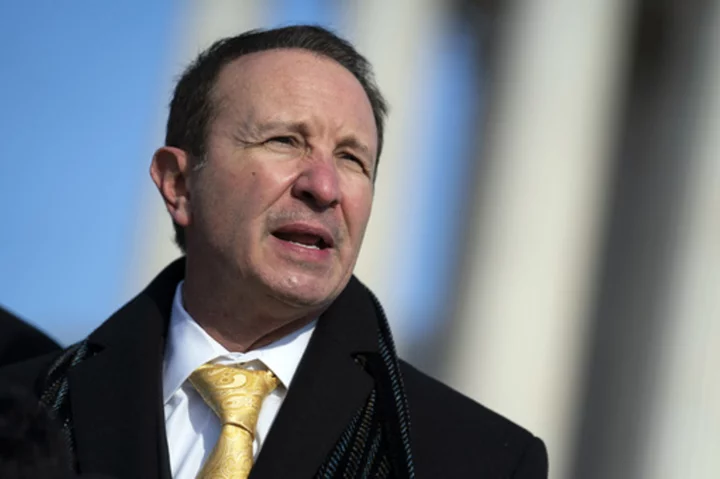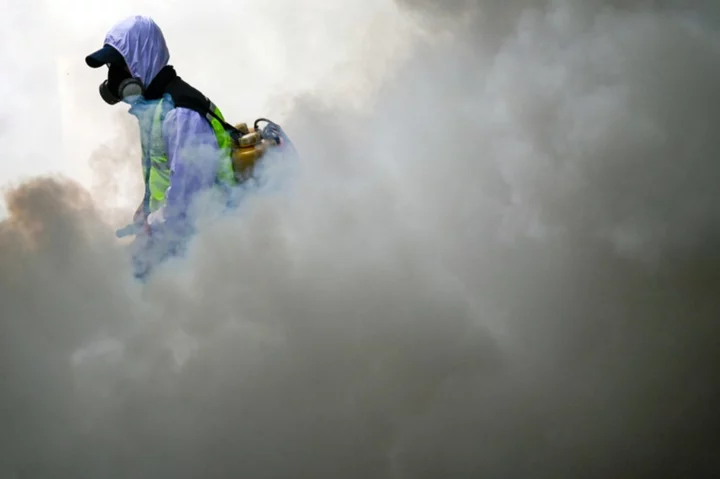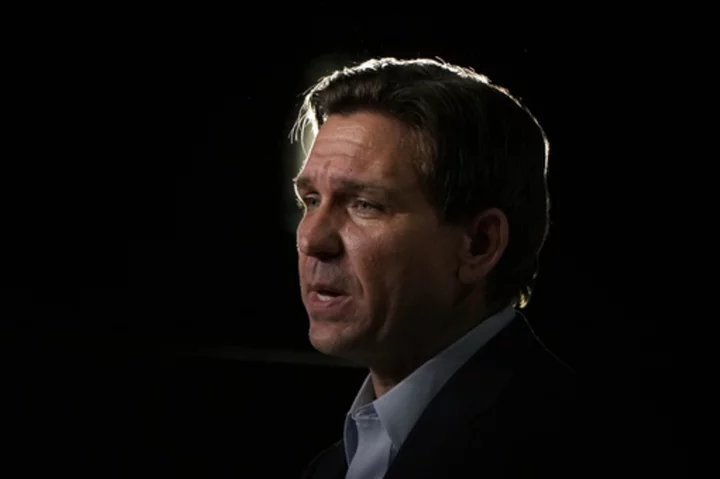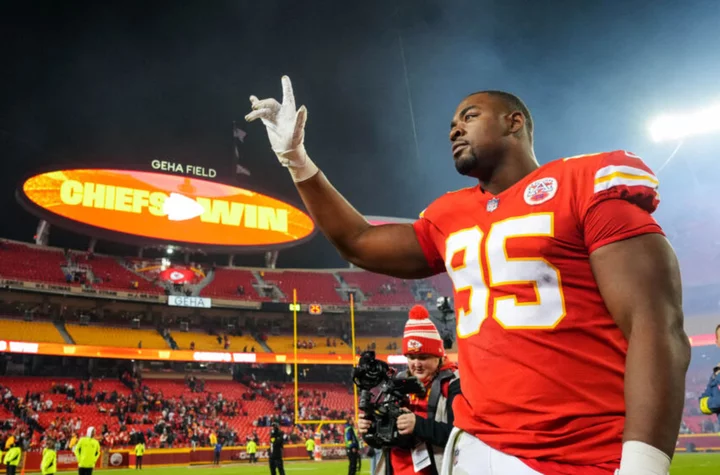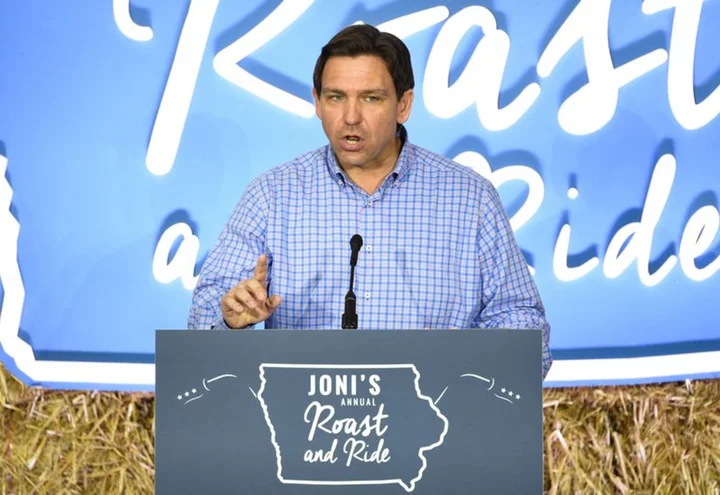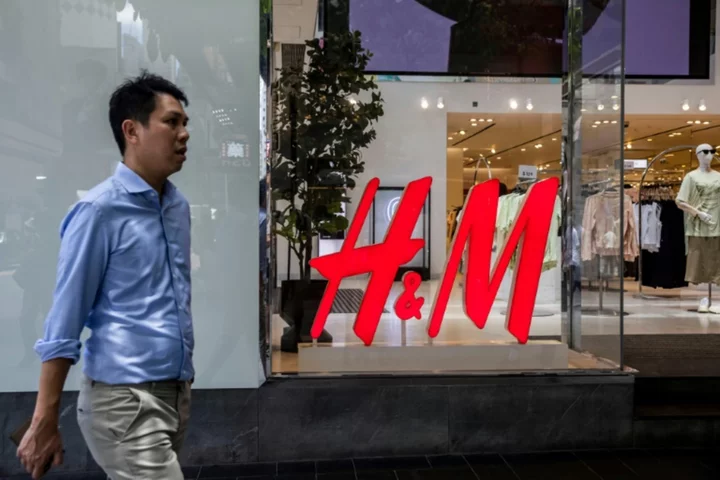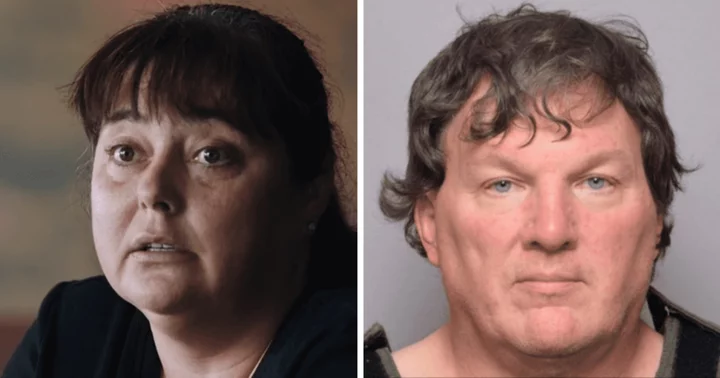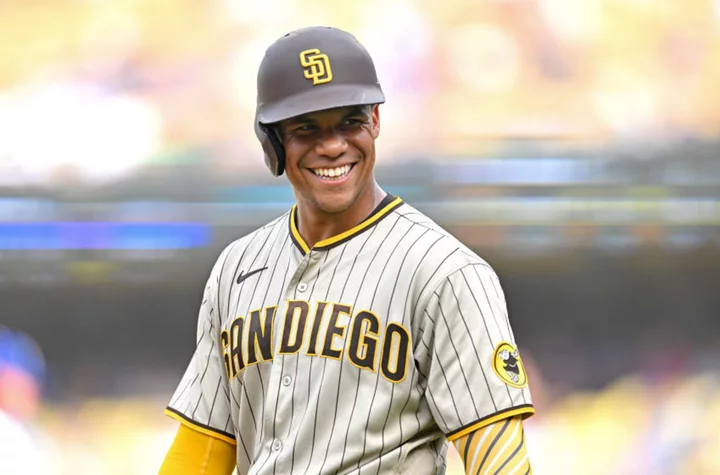BATON ROUGE, La. (AP) — Louisiana Attorney General Jeff Landry, the early GOP front runner in the state’s governor race, attended his first major-televised gubernatorial debate Friday evening, opening the door to political attacks from a crowded room of candidates.
With Louisiana’s election just a month away, the seven candidates hoped to break through the pack and appeal to voters ahead of the Oct. 14 open primary.
The candidates outlined how they plan to address pressing issues and where they stand on some of the state's most talked about topics, including the near-total abortion ban, crumbling roads and bridges, the property insurance crisis and the deadly 2019 arrest of Black motorist Ronald Greene.
The seven candidates who participated included GOP state Sen. Sharon Hewitt; Landry, a conservative backed by former President Donald Trump; Hunter Lundy, a Lake Charles-based attorney running as an independent; Republican state Rep. Richard Nelson; Republican state Treasurer John Schroder; Stephen Waguespack, the Republican former head of a powerful business group and former senior aide to then-Gov. Bobby Jindal; and Shawn Wilson, the former head of Louisiana’s Transportation and Development Department and the only major Democratic candidate.
The debate, which was hosted by Nexstar Media Group, Inc., aired on multiple Louisiana news stations including KLFY.
The debate topics included Louisiana's near total abortion ban, one of the strictest in the country, with a focus on whether candidates are in favor of exceptions in cases of rape or incest. While nearly all the Republicans said they support the law as is, Landry did add that he would be willing to have a discussion and debate about other exceptions, if it comes up in the legislature
Wilson, the sole Democrat, and Republican Rep. Nelson said they favor the exceptions. While Wilson supports exceptions and a ballot initiative to allow citizens to vote on the abortion laws, he has previously stated he is pro-life.
“It’s not the place of the legislature to come between a doctor and a woman, whether it’s cancer, diabetes, or maternal health. Those are the facts, pro-choice or pro-life,” Wilson said.
All candidates addressed the death of Greene, who was killed after being arrested by Louisiana State Police. Authorities initially blamed a car crash until The Associated Press published long-withheld body-camera video showing the motorist being stunned, beaten and dragged.
Some candidates criticized current Gov. John Bel Edwards for his handling of the aftermath. Schroder and Landry have backgrounds in law enforcement and said they are willing to meet with the Greene family. Schroder said law enforcement being held accountable is paramount. Landry pointed to the Alton Sterling case, saying he has a record of protecting police and holding them accountable.
Asked if they supported adding toll roads to raise funds for road and bridge projects, all candidates except Lundy raised their hands.
While most of the night was spent on issues, some candidates took the opportunity to verbally spar with Landry, who skipped the first debate.
Over the past month, most of his opponents have jabbed at Landry on social media and in interviews, calling him a bully and making accusations of backroom deals to gain support. In a recent television ad, Schroeder tied Landry to a political culture of cronyism and corruption.
Landry denied the accusations. “They are trying to make subjections, because all they can do is attack me. And those attacks do nothing to help the people in his great state. They do nothing to fix crime, nothing to fix education and to fix our economy,” Landry said Friday.
He wasn't the only one sustaining political blows. Lundy took multiple shots at Wilson, criticizing his time in the transportation department and saying he has a “zero percent chance" of winning.
Wilson brushed off the scrutiny, saying he is going to deal with real issues and "push forward for a better Louisiana.”
Under the state’s “jungle primary” system, candidates of all party affiliations are on the same October ballot. If no candidate tops 50%, the two leading vote recipients advance to a general election Nov. 18
Edwards, the only Democratic governor currently in the Deep South, is prevented by term limits from seeking reelection, giving Republicans a huge opportunity to seize control of the state’s executive branch.

